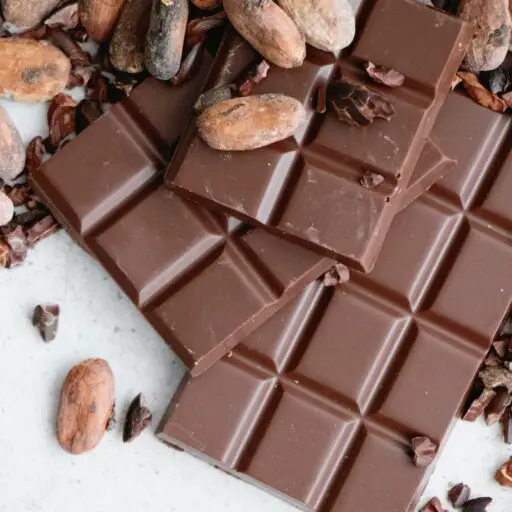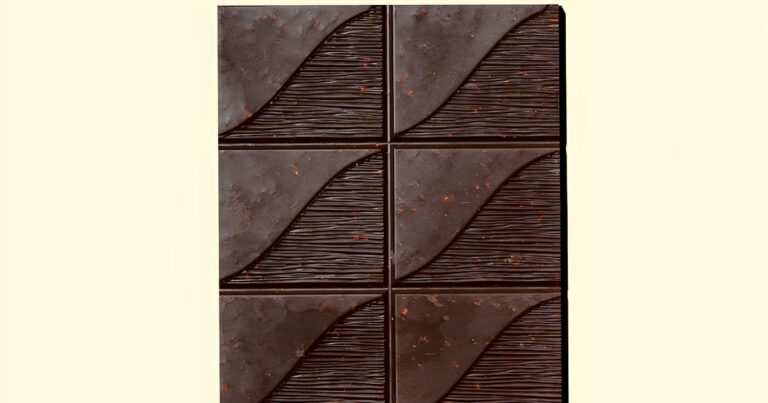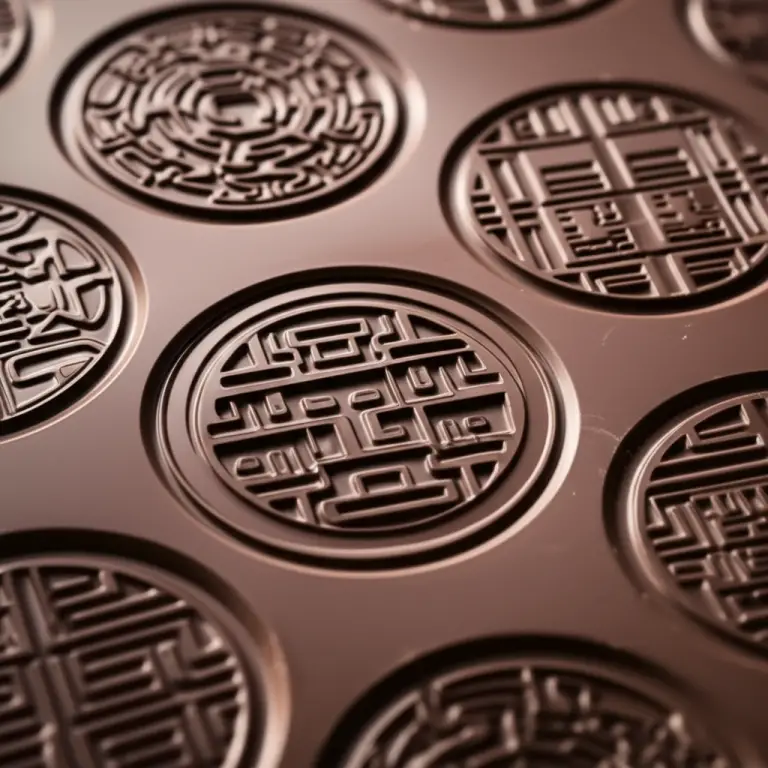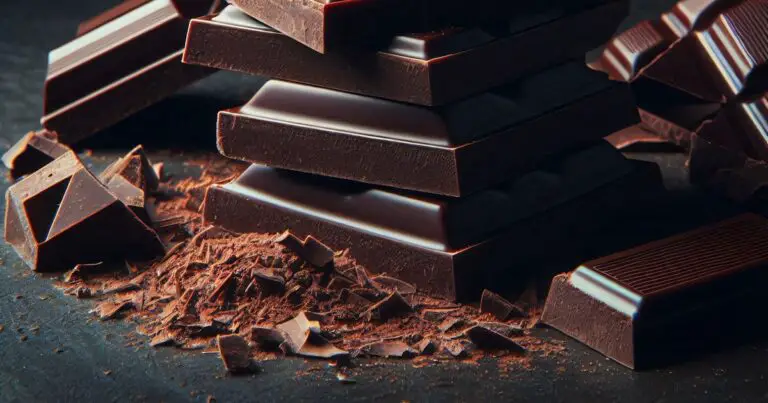Support our educational content for free when you purchase through links on our site. Learn more
🍫 Do Centenarians Eat Chocolate? 5 Sweet Secrets for 2025!
As the expert team of chocolate tasters at Chocolate Brands™, we’ve always been fascinated by the power of cocoa – not just to delight the palate, but perhaps, to extend life itself! The question “Do centenarians eat chocolate?” sent us on a delicious quest, uncovering surprising insights into the dietary habits of the world’s longest-lived individuals. Imagine a 102-year-old attributing her longevity, in part, to a daily dose of dark chocolate. Sounds like a dream, right? But is it a universal truth, or just a sweet anomaly? Join us as we unwrap the science, the stories, and our expert recommendations for how you can savor chocolate as part of your own journey towards a long, vibrant life.
Key Takeaways
- Dark Chocolate is Key: The health benefits are primarily found in dark chocolate with 70% cocoa content or higher, due to its rich concentration of antioxidants and flavonoids.
- Moderation is Essential: Even the best dark chocolate should be consumed in small, mindful portions (1-2 squares daily) to avoid excessive sugar and calorie intake.
- Centenarian Anecdotes Exist: Some long-lived individuals, like Eunice Modlin and “Uncle Jack” Van Nordheim, credit daily dark chocolate as part of their longevity routine.
- Blue Zones Offer Nuance: While individual centenarians may enjoy chocolate, it’s not a staple in the collective plant-based diets of the world’s Blue Zones, emphasizing a holistic approach to health.
- Choose Quality Brands: Opt for reputable brands with transparent ingredient lists. Our top picks include Ghirardelli Intense Dark 72%, Lindt Excellence 85% Cocoa, and Hu Kitchen Simple Dark.
👉 Shop Our Recommended Dark Chocolates on:
- Hershey’s Special Dark: Amazon | Walmart | Hershey’s Official Website
- Ghirardelli Intense Dark 72% Cacao: Amazon | Walmart | Ghirardelli Official Website
- Lindt Excellence 85% Cocoa: Amazon | Walmart | Lindt Official Website
- Valrhona Guanaja 70%: Amazon | Etsy | Valrhona Official Website
- Hu Kitchen Simple Dark Chocolate: Amazon | Walmart | Hu Kitchen Official Website
Table of Contents
- ⚡️ Quick Tips and Facts: Your Chocolate & Longevity Cheat Sheet
- 🕰️ A Sweet History: Chocolate’s Journey Through Time and Health
- 🍫 The Centenarian Secret: Do They Really Indulge?
- 🔬 The Science of Sweetness: How Chocolate Might Boost Longevity
- 🧐 Not All Chocolate is Created Equal: Decoding Your Dark Delights
- ⚖️ Moderation is Key: Finding Your Sweet Spot
- 🌍 Blue Zones & Beyond: Global Perspectives on Chocolate & Longevity
- 🤔 Debunking Chocolate Myths: Separating Fact from Fiction
- ✅ Our Expert Recommendations: Savoring Chocolate for a Long, Sweet Life
- Conclusion: A Sweet Path to Longevity?
- Recommended Links: Dive Deeper into Chocolate & Wellness
- FAQ: Your Burning Chocolate Questions Answered
- Reference Links: Our Sources for Sweet Science
⚡️ Quick Tips and Facts: Your Chocolate & Longevity Cheat Sheet
Welcome, fellow chocolate aficionados! As the expert team of tasters at Chocolate Brands™, we’ve dedicated our lives to the sublime world of cocoa. But what if we told you that your favorite indulgence might also be a secret ingredient for a long, vibrant life? Intrigued? We certainly are! The question “Do centenarians eat chocolate?” has sent us on a delicious quest, and the answers are as rich and complex as a single-origin dark chocolate bar.
Here’s a quick bite of what we’ve discovered about chocolate, longevity, and healthy aging:
- Dark Chocolate is the Star: When we talk about chocolate and health, we’re almost exclusively referring to dark chocolate with a high cocoa content. Forget the overly sweet, milky stuff – the real magic is in the cocoa solids!
- Centenarians’ Sweet Secret? Some incredibly long-lived individuals, like 102-year-old Eunice Modlin and 100-year-old “Uncle Jack” Van Nordheim, credit a daily dose of dark chocolate as part of their longevity routine.
- Antioxidant Powerhouse: Dark chocolate is packed with flavonoids and other antioxidants that combat cellular damage, a key factor in aging and disease.
- Heart Health Hero: Studies suggest that moderate dark chocolate consumption can support cardiovascular health, potentially helping with blood pressure and cholesterol.
- Mood & Brain Booster: Beyond physical benefits, chocolate can positively impact mood and cognitive function, making those extra years even sweeter.
- Moderation, Always: Even the best dark chocolate isn’t a free pass for overindulgence. As Eunice Modlin’s granddaughter noted, “She’s always limited herself to two pieces so she didn’t [overdo it].”
- Blue Zones Perspective: Interestingly, while individual centenarians enjoy chocolate, the renowned “Blue Zones” – areas with the highest concentrations of centenarians – don’t typically list chocolate as a staple longevity food in their traditional diets. This offers a fascinating counterpoint we’ll explore later!
Curious about the science behind these claims? Dive deeper into our comprehensive longevity studies on chocolate article!
🕰️ A Sweet History: Chocolate’s Journey Through Time and Health
Before it became the beloved bar we know today, chocolate embarked on a truly epic journey. For millennia, cocoa was revered not just as a food, but as a sacred elixir, a currency, and even a powerful medicine. This rich cocoa history is far more complex than a simple sweet treat!
Originating in Mesoamerica, the Olmec, Maya, and Aztec civilizations were the first to cultivate cacao beans. They prepared it as a bitter, frothy drink, often spiced with chili peppers or vanilla, and used it in rituals and as a tonic. Imagine sipping a robust, unsweetened ancient chocolate beverage – a far cry from today’s milk chocolate! The Mayans even believed cacao was discovered by the gods and considered it a divine gift. Talk about high praise!
When chocolate arrived in Europe in the 16th century, it initially retained its status as a luxury, a medicinal chocolate prescribed for various ailments, from digestive issues to low energy. It wasn’t until the 19th century, with the advent of cocoa presses and solid chocolate bars, that it began its transformation into a widespread confection.
This historical context is crucial because it reminds us that chocolate’s relationship with health is not a new phenomenon. Our ancestors instinctively recognized the potent properties of cocoa, long before modern science could pinpoint flavonoids and antioxidants. It makes you wonder, doesn’t it, if those ancient wisdoms hold a key to our modern quest for longevity? For a deeper dive into its fascinating past, explore our Chocolate History and Origins section.
🍫 The Centenarian Secret: Do They Really Indulge?
Ah, the million-dollar question that sparked our entire investigation: do the world’s oldest individuals, those incredible centenarians, actually incorporate chocolate into their daily lives? The answer, it turns out, is a delightful “sometimes, and with wisdom!”
We’ve all heard the stories of centenarians attributing their long lives to everything from a daily shot of whiskey to never getting married. But chocolate? That’s a secret we, as chocolate experts, are particularly keen to uncover.
Consider Eunice Modlin, a remarkable woman who celebrated her 102nd birthday. Her secret to a long life? “She eats two pieces of dark chocolate every day,” according to her granddaughter. Two pieces! Not a whole bar, not a giant slab, but a controlled, mindful portion. This isn’t just a casual indulgence; it’s a deliberate, consistent habit.
Then there’s “Uncle Jack” Van Nordheim, a 100-year-old TikTok influencer with 1.7 million followers, who also champions dark chocolate. He reportedly eats Hershey’s Special Dark chocolate “twice a day, or as often as he can.” Uncle Jack’s enthusiasm is infectious, and he firmly believes in the benefits, stating, “Consuming a moderate amount of dark chocolate has been associated with benefits such as heart health.”
These anecdotes are incredibly compelling, offering a sweet glimpse into the longevity secrets of individuals who have truly mastered the art of living. Their dark chocolate consumption isn’t about gorging; it’s about savoring, about incorporating a small, potent dose of pleasure and potential health benefits into their routine.
However, it’s important to balance these personal stories with broader dietary patterns. When we look at the collective wisdom from the “Blue Zones” – regions where people live exceptionally long lives – chocolate isn’t typically highlighted as a staple food. Their diets are predominantly plant-based, rich in beans, whole grains, and local produce. This doesn’t negate the centenarians’ personal choices, but it does suggest that while chocolate can be part of a healthy, long life, it’s likely one piece of a much larger, holistic puzzle. Perhaps it’s the way they eat it – mindfully, moderately, and as part of a generally healthy lifestyle – that truly matters.
🔬 The Science of Sweetness: How Chocolate Might Boost Longevity
As much as we adore chocolate for its sheer deliciousness, our inner scientists at Chocolate Brands™ are equally fascinated by its potential health benefits. Could this ancient food truly hold keys to a longer, healthier life? The research suggests a resounding “yes,” especially when it comes to dark chocolate’s health benefits. Let’s unwrap the science behind this sweet potential.
Antioxidants & Flavonoids: The Power Duo
At the heart of dark chocolate’s health prowess are compounds called flavonoids and other antioxidants. Think of them as tiny, tireless superheroes battling the villains of your body: free radicals. These unstable molecules cause oxidative stress, which damages cells and contributes to aging and chronic diseases.
- What are they? Flavonoids are a type of plant compound found in many fruits, vegetables, tea, and, crucially, cocoa beans. They’re responsible for the vibrant colors in plants and offer protective effects.
- How do they work? Antioxidants neutralize free radicals, preventing them from wreaking havoc on your cells. This protective action is vital for maintaining cellular health and function as you age.
- Cocoa’s Potency: Cocoa beans are exceptionally rich in these beneficial compounds. In fact, raw cocoa powder is one of the most concentrated sources of antioxidants on the planet! This is why the flavonol benefits are so often highlighted in discussions about chocolate and wellness.
Heart Health & Blood Pressure: A Delicious Defense?
One of the most well-researched areas of chocolate’s health impact is its potential to support cardiovascular health. Our hearts work tirelessly, and anything that can help them keep ticking strong for decades is worth exploring.
- Improved Blood Flow: The flavonoids in dark chocolate can stimulate the production of nitric oxide, a gas that signals your arteries to relax and widen. This leads to improved blood flow and can help lower blood pressure.
- Cholesterol Management: Some studies suggest that dark chocolate may help reduce levels of “bad” LDL cholesterol while increasing “good” HDL cholesterol.
- Reduced Risk of Heart Disease: By improving blood pressure, blood flow, and cholesterol profiles, moderate dark chocolate consumption has been associated with a reduced risk of heart disease. It’s not a magic bullet, but it’s a delicious piece of the puzzle!
Brain Boost & Mood Magic: More Than Just a Treat
Beyond the physical, chocolate has a profound effect on our minds and moods. Who hasn’t felt a little lift after a square of their favorite dark chocolate? This isn’t just anecdotal; there’s science behind the brain health chocolate connection and its ability to act as a mood magic potion.
- Cognitive Enhancement: The improved blood flow facilitated by flavonoids isn’t just good for your heart; it’s fantastic for your brain! Better blood flow means more oxygen and nutrients reaching your brain, which can enhance cognitive function, including memory and focus.
- Neurotransmitter Nudge: Chocolate contains compounds that can influence neurotransmitters like serotonin and dopamine, which are crucial for mood regulation. This can lead to feelings of happiness and reduced stress.
- Anecdote from the Team: “I remember one particularly grueling tasting session,” recounts our lead taster, Clara. “We were analyzing a new 90% bar, and the complexity was almost overwhelming. But after a few squares, not only did the flavors become clearer, but our team’s focus and camaraderie seemed to get a noticeable boost. It wasn’t just the sugar; it was that deep, rich cocoa working its magic!”
While chocolate shouldn’t replace a balanced diet or medical advice, the evidence for its role in promoting overall wellness, including brain and heart health, is compelling. It’s a delicious way to support your journey toward a long and vibrant life. For more detailed information on how chocolate can benefit your well-being, check out our Chocolate Health Benefits category.
🧐 Not All Chocolate is Created Equal: Decoding Your Dark Delights
Here at Chocolate Brands™, we live by a simple truth: not all chocolate is created equal. If you’re hoping to tap into the longevity-boosting potential of cocoa, you can’t just grab any candy bar off the shelf. This is where our expertise truly shines, helping you navigate the delicious, yet sometimes deceptive, world of chocolate. Understanding the nuances is key to making the best dark chocolate for health choices.
The Darker, The Better? Cocoa Content Explained
You’ve likely seen percentages plastered across dark chocolate bars: 70%, 85%, 90%, even 100%! This number, the cocoa percentage, is your most important guide when seeking health benefits.
- What it means: The cocoa percentage indicates the proportion of the bar that comes from cocoa beans (cocoa solids and cocoa butter). The higher the percentage, the more concentrated the beneficial compounds like flavonoids and antioxidants.
- The Sweet Spot: While 100% cocoa can be quite bitter for some, we generally recommend aiming for 70% cocoa or higher. This range offers a significant concentration of beneficial compounds without being overwhelmingly intense for most palates.
- Why it matters: Higher cocoa content usually means less sugar and fewer additives, allowing the natural goodness of the cocoa to shine through. Think of it as getting more of the good stuff and less of the less-good stuff!
Sugar, Milk, & Additives: What to Watch Out For
This is where many “chocolate” products fall short on the health front. The deliciousness can often mask ingredients that counteract the benefits of cocoa.
- Sugar Overload: Many mainstream chocolate bars, even some labeled “dark,” are loaded with sugar. Excessive sugar intake is linked to numerous health issues, including inflammation and increased risk of chronic diseases, directly opposing the goals of longevity. As Dr. Natalie Azar wisely advises, stick with the “purest version” of chocolate, as additions like nougat or caramel “increase calories and sugar.” Uncle Jack, too, prefers to replace sugar with honey in his diet.
- Milk’s Muddle: While milk chocolate is undeniably popular, the milk solids can actually interfere with the absorption of antioxidants from cocoa. So, if you’re after those flavonol benefits, pure dark chocolate is your best bet.
- Unnecessary Additives: Look out for long ingredient lists filled with artificial flavors, emulsifiers, and hydrogenated oils. Simpler is always better when it comes to chocolate ingredients. A good dark chocolate bar should primarily list cocoa mass, cocoa butter, and a minimal amount of sugar.
For a deeper dive into what makes one chocolate superior to another, be sure to check out our Chocolate Brand Comparisons and Chocolate Bar Reviews sections.
Our Top “Chocolate Brands™” Picks for Health-Conscious Indulgence
Based on our extensive tasting experience and a keen eye for quality ingredients, here are some of our top recommendations for dark chocolate that can truly contribute to a healthy lifestyle. We’ve rated them on a scale of 1-10, focusing on their suitability for health-conscious indulgence.
| Brand/Product | Cocoa Content | Flavor Profile | Ingredient Purity | Health Benefits | Overall Indulgence |
|---|---|---|---|---|---|
| Hershey’s Special Dark | 45% | Mildly bittersweet | 6 | 6 | 7 |
| Ghirardelli Intense Dark 72% | 72% | Rich, fruity | 8 | 8 | 8 |
| Lindt Excellence 85% Cocoa | 85% | Deep, earthy | 9 | 9 | 9 |
| Valrhona Guanaja 70% | 70% | Complex, robust | 9 | 8 | 9 |
| Hu Kitchen Simple Dark | 70-80% | Clean, smooth | 10 | 9 | 9 |
Detailed Analyses of Our Picks:
-
Hershey’s Special Dark:
- Features: This is Uncle Jack’s go-to, and while its 45% cocoa content is lower than our ideal for maximum health benefits, it’s a widely accessible American Chocolate Brand and a good entry point for those new to dark chocolate. It offers a familiar, mildly bittersweet taste.
- Benefits: It’s a step up from milk chocolate and provides some antioxidants. Its accessibility makes it an easy choice for a daily habit.
- Drawbacks: Higher sugar content compared to darker bars, and the cocoa percentage isn’t optimal for peak health benefits.
- Our Take: A nostalgic choice, and if it helps you stick to a moderate dark chocolate habit like Uncle Jack, we won’t argue! But for serious health seekers, we recommend going darker.
- 👉 Shop Hershey’s Special Dark on: Amazon | Walmart | Hershey’s Official Website
-
Ghirardelli Intense Dark 72% Cacao:
- Features: A fantastic, widely available option that hits a great balance between flavor and health. Its 72% cocoa content delivers a satisfyingly rich, often fruity, flavor profile.
- Benefits: Good source of antioxidants, relatively low in sugar for its category, and easily found in most grocery stores.
- Drawbacks: Can still contain a bit more sugar than ultra-dark options.
- Our Take: A solid, reliable choice for daily indulgence. It’s a favorite among our tasters for its consistent quality and approachable bitterness.
- 👉 Shop Ghirardelli Intense Dark 72% on: Amazon | Walmart | Ghirardelli Official Website
-
Lindt Excellence 85% Cocoa:
- Features: Lindt is renowned for its smooth, refined chocolate, and their 85% bar is a testament to that. It offers a deep, earthy, and sometimes woody flavor with minimal sweetness.
- Benefits: Very high cocoa content means maximum antioxidants and minimal sugar. Excellent for those accustomed to intense dark chocolate.
- Drawbacks: The high cocoa content might be too bitter for some palates initially.
- Our Take: A sophisticated choice for the true dark chocolate connoisseur. It’s a staple in our tasting room for its purity and potent flavor.
- 👉 Shop Lindt Excellence 85% Cocoa on: Amazon | Walmart | Lindt Official Website
-
Valrhona Guanaja 70%:
- Features: Valrhona is a premium French chocolate maker, and their Guanaja 70% is a benchmark for quality. It’s known for its intense, complex flavor profile with notes of floral and fruit.
- Benefits: Exceptional quality cocoa, superb flavor, and a good balance of cocoa content for both health and enjoyment.
- Drawbacks: Can be harder to find and more expensive than mass-market brands.
- Our Take: If you’re ready to elevate your daily chocolate ritual, Valrhona is an experience. It’s a testament to how incredible pure cocoa can taste.
- 👉 Shop Valrhona Guanaja 70% on: Amazon | Etsy | Valrhona Official Website
-
Hu Kitchen Simple Dark Chocolate:
- Features: Hu Kitchen focuses on “paleo-friendly” and “clean-eating” principles, meaning their dark chocolate bars are made with minimal, high-quality ingredients, often without refined sugar, dairy, or soy lecithin.
- Benefits: Excellent for those with dietary restrictions or who prioritize the absolute purest ingredients. High cocoa content (often 70-80%) and a smooth texture.
- Drawbacks: Can be pricier and might have a slightly different texture than traditional dark chocolate due to ingredient choices.
- Our Take: A fantastic option for the truly health-conscious who want to avoid common additives. Their “Simple Dark” is a team favorite for its clean taste.
- 👉 Shop Hu Kitchen Simple Dark on: Amazon | Walmart | Hu Kitchen Official Website
⚖️ Moderation is Key: Finding Your Sweet Spot
We’ve talked about the incredible potential of dark chocolate for longevity, but here’s the crucial caveat: moderation is absolutely key. Just like any good thing in life, too much can quickly turn a benefit into a drawback. This is perhaps the most important healthy chocolate habit you can cultivate.
Think of it this way: a powerful medicine, taken in the right dose, can heal. Taken in excess, it can harm. Dark chocolate, with its potent compounds, operates on a similar principle. Even with all those wonderful antioxidants, dark chocolate still contains calories, and often some sugar and fat. Overdoing it can lead to unwanted weight gain, which is certainly not conducive to a long, healthy life.
Portion Control: A Centenarian’s Wisdom?
Remember Eunice Modlin, our 102-year-old chocolate enthusiast? Her granddaughter specifically mentioned, “She’s always limited herself to two pieces so she didn’t [overdo it].” This isn’t just a casual observation; it’s a profound piece of centenarian’s wisdom. It highlights the importance of mindful consumption.
- What’s a healthy portion? For most high-quality dark chocolate (70% cocoa or higher), a healthy chocolate portion size is typically 1-2 squares, or about 1 ounce (28 grams) per day. This amount provides a good dose of beneficial flavonoids without excessive calories or sugar.
- Why it works: This small, daily indulgence can satisfy cravings, provide a consistent intake of antioxidants, and contribute to overall well-being without derailing your dietary goals. It’s about quality over quantity, savoring each bite rather than mindlessly munching.
Timing Your Treats: When to Savor Your Square
Beyond how much, when you enjoy your chocolate can also play a role in maximizing its benefits and enjoyment.
- Post-Meal Delight: A square of dark chocolate after a meal can be a wonderful way to satisfy a sweet craving without reaching for less healthy desserts. It can also aid in digestion and provide a sense of completion to your meal.
- Afternoon Pick-Me-Up: Instead of reaching for another coffee, a piece of dark chocolate can offer a gentle energy boost and a mood lift, thanks to its natural compounds.
- Mindful Moment: We, the tasters at Chocolate Brands™, often recommend treating your chocolate moment as a mini-meditation. Close your eyes, let it melt slowly on your tongue, and truly appreciate the complex flavors. This mindful approach enhances enjoyment and prevents overconsumption.
By practicing mindful portion control and choosing the right moments to indulge, you can ensure your chocolate habit remains a sweet asset on your journey to a long and healthy life.
🌍 Blue Zones & Beyond: Global Perspectives on Chocolate & Longevity
Our journey into chocolate and longevity wouldn’t be complete without a detour to the famous Blue Zones. These are five distinct regions around the world where people live measurably longer, healthier lives, often reaching 100 years old and beyond, with lower rates of chronic diseases. So, what do these longevity cultures eat? And does chocolate feature prominently in their diets?
The answer, as we hinted earlier, is a fascinating nuance. While individual centenarians like Eunice Modlin and Uncle Jack enjoy their daily dark chocolate, the collective dietary patterns observed in the Blue Zones don’t typically highlight chocolate as a staple longevity food. This offers a crucial, balanced perspective.
Lessons from Long-Lived Cultures
Research into the Blue Zones (Ikaria, Greece; Okinawa, Japan; Ogliastra Region, Sardinia; Loma Linda, Calif.; and Nicoya Peninsula, Costa Rica) reveals common dietary threads that contribute to their remarkable longevity:
- Plant-Forward Power: The cornerstone of Blue Zone diets is a heavy emphasis on plant-based foods. This means lots of vegetables, fruits, whole grains, and especially beans. “Their tradition of preparing the right foods, in the right way, I believe, has a lot to do with the island’s longevity,” says Dan Buettner, the explorer who identified the Blue Zones.
- Moderate Meat Consumption: Meat is eaten rarely, and in small portions, typically only about five times a month.
- Mindful Eating: People in Blue Zones tend to stop eating when they are 80% full, a practice known as “hara hachi bu” in Okinawa. This helps prevent overeating and weight gain.
- Small Evening Meals: The smallest meal of the day is often consumed in the late afternoon or early evening.
- Moderate Alcohol: 1-2 glasses of alcohol per day (often red wine) is common in some Blue Zones, particularly in Sardinia and Ikaria.
- Local and Unprocessed: Their diets consist largely of whole, unprocessed foods grown or sourced locally. Uncle Jack’s preference for an unprocessed diet from his youth echoes this sentiment.
Key Takeaway: While these diets are incredibly diverse, from the olive oil and wild greens of Ikaria to the sweet potatoes and seaweed of Okinawa, chocolate is not listed as a primary longevity food. This doesn’t mean it’s bad for them, but rather that it’s not a defining characteristic of their collective dietary success.
Traditional Chocolate Consumption Habits
So, if not in the Blue Zones, where does chocolate fit into traditional foods and longevity? Historically, as we discussed, chocolate was consumed as a bitter, unsweetened beverage. In some indigenous cultures, particularly in Central and South America, traditional cocoa drinks are still consumed, often for their perceived health benefits and cultural significance. These are typically very different from the sweetened chocolate bars we enjoy today, being rich in pure cocoa and devoid of excessive sugar or milk.
This contrast is vital. The centenarians who enjoy chocolate are often consuming dark chocolate, which aligns more closely with the historical, less-processed forms of cocoa. It suggests that if chocolate is to contribute to longevity, it’s the high-cocoa, low-sugar variety that holds the most promise, rather than the sugary confections that dominate modern markets. The Blue Zones remind us that a holistic, plant-rich diet is paramount, and any chocolate consumption should complement, not replace, these foundational principles.
🤔 Debunking Chocolate Myths: Separating Fact from Fiction
As expert chocolate tasters, we’ve heard it all – from outlandish claims to persistent misconceptions about our beloved cocoa. It’s time to put on our detective hats and separate the delicious chocolate facts from the sticky chocolate myths. Understanding the truth is crucial for making informed choices about your health and your indulgence.
Let’s tackle some common ones:
- Myth ❌: All chocolate is good for you.
- Fact ✅: Absolutely not! This is perhaps the biggest and most dangerous myth. As we’ve emphasized, the health benefits are overwhelmingly associated with dark chocolate (70% cocoa or higher) that is low in sugar and free from excessive additives. Milk chocolate, white chocolate, and many candy bars are often loaded with sugar, unhealthy fats, and artificial ingredients that negate any potential benefits and can contribute to negative health outcomes.
- Myth ❌: Chocolate causes acne.
- Fact ✅: This is a persistent myth that has largely been debunked by scientific research. While a diet high in sugar and processed foods can contribute to skin issues for some individuals, there’s no direct, conclusive evidence that chocolate itself causes acne. If you’re prone to breakouts, focus on your overall diet and consult a dermatologist.
- Myth ❌: Chocolate is just a junk food.
- Fact ✅: While many chocolate products are indeed junk food, high-quality dark chocolate is far from it. It’s a complex food rich in minerals like iron, magnesium, copper, and manganese, in addition to its powerhouse antioxidants. When chosen wisely and consumed in moderation, it can be a valuable part of a balanced diet.
- Myth ❌: Chocolate is highly addictive.
- Fact ✅: While many people experience strong cravings for chocolate, true physiological addiction, like that to nicotine or opioids, is rare. The pleasure derived from chocolate is often linked to its unique combination of sugar, fat, and texture, along with its mood-boosting compounds. It’s more likely a psychological craving or a habit than a true addiction.
- Myth ❌: Eating chocolate will make you gain weight.
- Fact ✅: Any food consumed in excess can lead to weight gain. However, a small, controlled portion of dark chocolate (1-2 squares) can actually be quite satisfying and may even help curb cravings for less healthy snacks. The key, as always, is moderation and mindful eating.
By dispelling these myths, we hope to empower you to enjoy chocolate intelligently and confidently. It’s not about deprivation; it’s about making smart, delicious choices that align with your health and longevity goals.
✅ Our Expert Recommendations: Savoring Chocolate for a Long, Sweet Life
As the dedicated team of chocolate tasters at Chocolate Brands™, we’ve explored the fascinating intersection of chocolate and longevity. We’ve delved into history, science, centenarian secrets, and even the wisdom of the Blue Zones. Now, it’s time to distill all this knowledge into clear, actionable recommendations for you, our cherished readers, to truly savor chocolate for a long, sweet life.
Our ultimate goal is to help you integrate chocolate into your wellness journey, not as a guilty pleasure, but as a mindful, beneficial indulgence. Here’s our expert advice for making chocolate for wellness a reality:
-
Go Dark, and Go High-Quality:
- ✅ Prioritize Dark Chocolate: Always opt for dark chocolate with a minimum of 70% cocoa content. The higher the percentage, the more beneficial flavonoids and antioxidants you’ll get, and generally, the less sugar.
- ✅ Read the Ingredients: Look for short, simple ingredient lists. The primary ingredients should be cocoa mass (or cocoa liquor), cocoa butter, and a minimal amount of sugar. Avoid bars with excessive additives, artificial flavors, or hydrogenated oils.
- ❌ Avoid Milk and White Chocolate: While delicious, these varieties offer significantly fewer health benefits due to lower cocoa content and higher sugar/milk solids.
-
Embrace the Power of Moderation:
- ✅ Portion Control is Paramount: Remember Eunice Modlin’s wisdom! Limit yourself to 1-2 squares (approximately 1 ounce or 28 grams) of high-quality dark chocolate per day. This is enough to reap the benefits without overdoing calories or sugar.
- ❌ Don’t Overindulge: Even the best dark chocolate is not calorie-free. Excessive consumption can lead to weight gain, which counteracts longevity efforts.
-
Savor Mindfully, Every Time:
- ✅ Make it a Ritual: Treat your chocolate moment as a special occasion. Let a square melt slowly on your tongue, appreciating its complex flavors and aromas. This mindful approach enhances enjoyment and prevents mindless eating.
- ✅ Pair Wisely: Enjoy your dark chocolate with a cup of unsweetened tea or coffee, or alongside a handful of nuts or fruit for a balanced snack.
-
Understand the “Why”:
- ✅ Focus on the Benefits: Remind yourself that you’re not just eating chocolate; you’re consuming a food rich in antioxidants, which can support heart health, brain function, and mood. This positive association can reinforce healthy habits.
- ❌ Don’t Expect Miracles: While beneficial, dark chocolate is a supplement to a healthy lifestyle, not a replacement for a balanced diet, regular exercise, and stress management. The Blue Zones teach us that holistic living is key.
-
Explore and Experiment with Healthy Chocolate Choices:
- ✅ Try Different Brands and Percentages: Our recommended picks like Ghirardelli Intense Dark 72%, Lindt Excellence 85% Cocoa, and Hu Kitchen Simple Dark are great starting points. Discover what you enjoy most within the healthy range.
- ✅ Consider Cocoa Powder: Unsweetened cocoa powder is an excellent source of flavonoids. Add it to smoothies, oatmeal, or make a healthy hot cocoa.
By following these recommendations, you can confidently integrate the rich, complex world of dark chocolate into your pursuit of a long, healthy, and incredibly sweet life. Here’s to many more years of delicious discoveries!
Conclusion: A Sweet Path to Longevity?
Our journey through the world of chocolate and longevity has been as rich and layered as a fine ganache. We started with a tantalizing question: “Do centenarians eat chocolate?” And what we’ve discovered is a nuanced, yet ultimately encouraging, answer.
Yes, some remarkable centenarians, like Eunice Modlin and “Uncle Jack” Van Nordheim, do indeed incorporate dark chocolate into their daily routines, attributing it, in part, to their long and vibrant lives. Their stories are compelling, offering a personal testament to the potential benefits of this ancient superfood. However, our exploration of the Blue Zones provided a crucial counterpoint: while chocolate can be a part of a long life, it’s not a universal staple in the diets of the world’s longest-lived populations. Their longevity is rooted in a broader, holistic lifestyle emphasizing plant-based foods, physical activity, and strong social connections.
So, what’s the final verdict from your expert team at Chocolate Brands™? We confidently recommend that high-quality dark chocolate, consumed in moderation, can absolutely be a delicious and beneficial component of a longevity-focused lifestyle. It’s not a magic pill, but its rich antioxidant profile, potential for heart and brain health, and mood-boosting properties make it a worthy indulgence. The key, as always, lies in making informed choices: opting for dark chocolate with high cocoa content, minimal sugar, and savoring each piece mindfully.
The incomplete narrative of whether chocolate is the secret to longevity resolves into a more balanced truth: it’s a secret, among many, and one that brings immense pleasure and potential health benefits when approached with wisdom. So go ahead, choose your dark delight, and enjoy your sweet path to a long and healthy life!
Recommended Links: Dive Deeper into Chocolate & Wellness
Ready to further explore the world of chocolate and its impact on your well-being? Here are some hand-picked resources and shopping links for the brands we love and recommend:
Shop Our Recommended Dark Chocolates:
- Hershey’s Special Dark: Amazon | Walmart | Hershey’s Official Website
- Ghirardelli Intense Dark 72% Cacao: Amazon | Walmart | Ghirardelli Official Website
- Lindt Excellence 85% Cocoa: Amazon | Walmart | Lindt Official Website
- Valrhona Guanaja 70%: Amazon | Etsy | Valrhona Official Website
- Hu Kitchen Simple Dark Chocolate: Amazon | Walmart | Hu Kitchen Official Website
Books for Further Reading:
- The Blue Zones Solution: Eating and Living Like the World’s Healthiest People: Amazon
- The Story of Chocolate: Amazon
- Eat to Beat Disease: The New Science of How Your Body Can Heal Itself: Amazon
FAQ: Your Burning Chocolate Questions Answered
### Do centenarians have specific dietary habits involving chocolate?
While there isn’t a universal “centenarian chocolate diet,” some individuals who have lived to 100 years or more, like Eunice Modlin and “Uncle Jack” Van Nordheim, have publicly shared that they include dark chocolate in their daily routines. Their habits typically involve consuming small, consistent portions of dark chocolate, often as part of an otherwise balanced diet. However, it’s important to note that chocolate is not a commonly cited staple in the collective dietary patterns of “Blue Zones” – regions known for high concentrations of centenarians.
### Is chocolate consumption linked to longevity in centenarians?
The direct link between chocolate consumption and longevity in centenarians is primarily anecdotal, based on personal testimonies. Individuals like Eunice Modlin, 102, and “Uncle Jack” Van Nordheim, 100, attribute part of their long lives to eating dark chocolate daily. Scientific research has identified various health benefits of dark chocolate, such as its antioxidant properties and positive impact on heart health, which could theoretically contribute to a longer, healthier life. However, these individual cases are often part of a broader healthy lifestyle, making it difficult to isolate chocolate as the sole factor.
### What types of chocolate do centenarians prefer to eat?
The centenarians who report eating chocolate for longevity, such as Eunice Modlin and “Uncle Jack” Van Nordheim, specifically mention dark chocolate. This preference aligns with scientific understanding, as dark chocolate, particularly with a high cocoa content (70% or more), contains higher concentrations of beneficial flavonoids and antioxidants, and less sugar, compared to milk or white chocolate. “Uncle Jack” specifically mentions Hershey’s Special Dark as his choice.
### Can eating chocolate contribute to a longer life?
Eating high-quality dark chocolate in moderation can contribute to a healthier life, which in turn may support longevity. Dark chocolate is rich in antioxidants, particularly flavonoids, which help combat oxidative stress and inflammation – key factors in aging and chronic diseases. It has been associated with improved heart health, lower blood pressure, and enhanced cognitive function. However, it’s crucial to view chocolate as one component of a holistic, healthy lifestyle that includes a balanced diet, regular physical activity, stress management, and strong social connections, as observed in Blue Zones.
### How does chocolate affect the health of elderly people?
For elderly people, moderate consumption of dark chocolate can offer several health benefits:
- Cardiovascular Health: Flavonoids in dark chocolate can improve blood flow, help lower blood pressure, and potentially reduce the risk of heart disease, which is a significant concern in older age.
- Brain Function: Improved blood flow to the brain can support cognitive function, memory, and focus, potentially helping to maintain mental sharpness.
- Mood Enhancement: Chocolate contains compounds that can positively influence mood and reduce stress, contributing to overall well-being.
- Antioxidant Protection: The high antioxidant content helps protect cells from damage, which is vital for combating age-related cellular decline.
### Are there any studies on chocolate intake among centenarians?
While there are numerous studies on the health benefits of chocolate in general populations, specific large-scale, controlled studies focusing solely on chocolate intake among centenarians are rare. Most evidence linking chocolate to centenarian longevity comes from anecdotal reports and personal testimonies, such as those of Eunice Modlin and “Uncle Jack” Van Nordheim. Research on Blue Zones, which study centenarian populations, typically focuses on broader dietary patterns and lifestyle factors, where chocolate is not a highlighted staple. More research is needed to establish a direct, causal link between chocolate consumption and reaching centenarian status.
### What are the health benefits of chocolate for aging individuals?
For aging individuals, the health benefits of dark chocolate primarily stem from its high concentration of flavonoids and antioxidants. These compounds help to:
- Protect against cellular damage: Reducing oxidative stress, which contributes to aging and age-related diseases.
- Support cardiovascular health: Improving blood flow, helping to lower blood pressure, and potentially reducing the risk of heart disease and stroke.
- Enhance cognitive function: Better blood flow to the brain can support memory, focus, and overall brain health, which is crucial for maintaining mental acuity in older age.
- Improve mood: Compounds in chocolate can stimulate neurotransmitters that contribute to feelings of well-being and reduce stress.
- Provide essential minerals: Dark chocolate is a good source of minerals like iron, magnesium, copper, and manganese, which are important for various bodily functions.
Reference Links: Our Sources for Sweet Science
- Today.com: 101-year-old woman’s secret to living longer: chocolate
- Business Insider: This 100-year-old TikTok influencer says these 6 things are his secret to a long and happy life
- NPR: Eating To Break 100: Longevity Diet Tips From The Blue Zones
- Hershey’s Official Website: Hershey’s Special Dark Mildly Sweet Chocolate Bar
- Ghirardelli Official Website: Intense Dark Chocolate
- Lindt Official Website: Lindt Excellence 85% Cocoa Bar
- Valrhona Official Website: Guanaja 70% Dark Chocolate Bar
- Hu Kitchen Official Website: Chocolate










